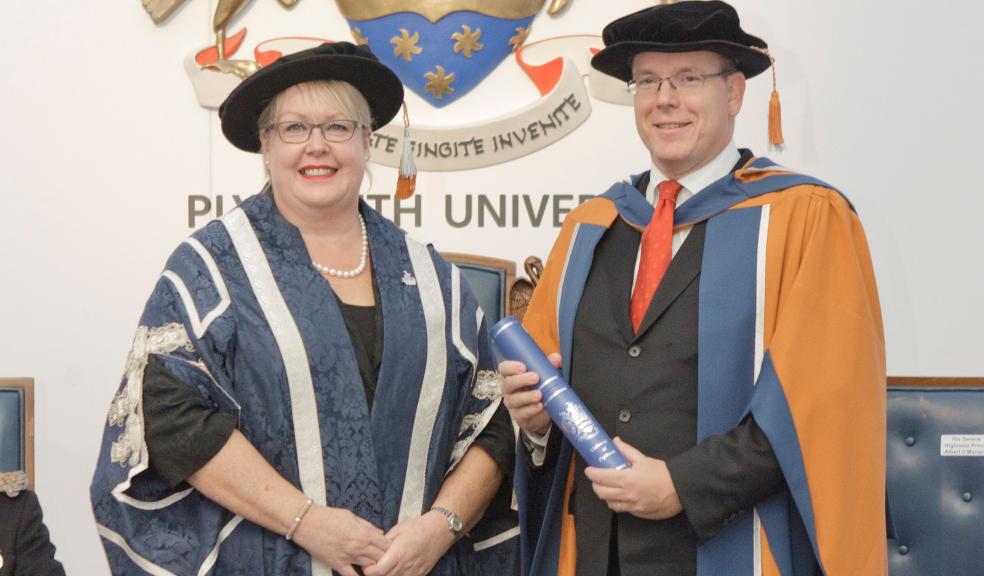
HSH Prince Albert II of Monaco receives Honorary Doctorate from Plymouth University
His Serene Highness Prince Albert II of Monaco has been honoured for his commitment to the marine environment with an honorary doctorate from Plymouth University.
HSH Prince Albert II was presented with an Honorary Doctorate of Marine Science at a special ceremony on Thursday (26 September) during a visit to the campus.
As part of the trip, HSH Prince Albert II took a tour of the University’s £19 million Marine Building for a demonstration of its advanced wave tanks, used for testing marine-based renewable energy devices and simulating coastlines and flood defences. He also met some of the researchers in the Marine Institute that he’s helped fund through his Prince Albert II of Monaco Foundation, which is dedicated to protecting the environment.
Professor Wendy Purcell, Vice-Chancellor and President, who presented the doctorate, said: “We were delighted to welcome HSH Prince Albert II to Plymouth University and showcase our world-leading excellence in marine and maritime research and education. The Prince is passionate about the marine environment and shares with the University a restless endeavour to address some of the grand challenges of the day.”
HSH Prince Albert II is the second royal recipient of an honorary Marine Science doctorate in the space of 12 months, following the award to HRH The Duke of Edinburgh, when he opened the Marine Building last October.
The reigning monarch of the Principality of Monaco, and head of the Princely House of Grimaldi, Prince Albert II established his Foundation in 2006 to encourage the sustainable and fair management of natural resources, and support the implementation of innovative and ethical solutions in the areas of climate change, water and biodiversity.
One of his particular areas of focus has been around marine conservation, marine biotechnology and sustainable aquaculture, particularly in fisheries policy and the need for rational management of diminishing stocks, as well as scientific work in the UK on fisheries and aquaculture.
He has been supportive of the research and contribution of Plymouth University in many areas close to his Foundation’s remit, and is active in backing multi-disciplinary projects relevant to this field. Among them has been support for Dr Jason Hall-Spencer, in the School of Marine Science and Engineering, focused on coral and mollusc responses to potential ocean acidification.













